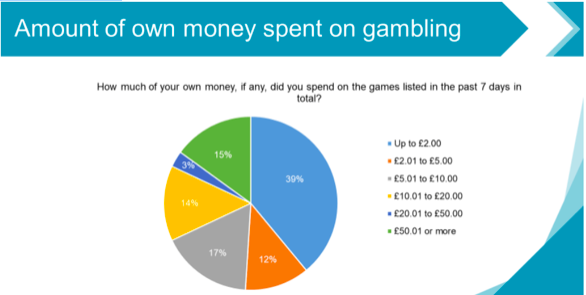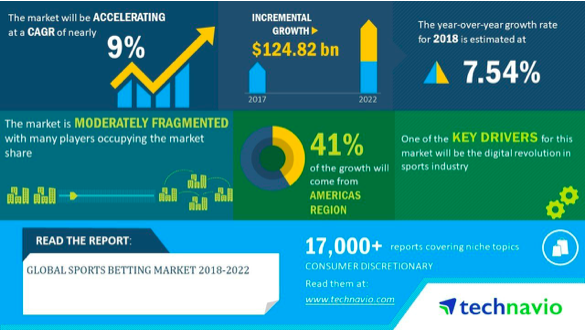Technological advancements have brought improvements in all areas of our lives, including the sports betting industry. The betting market’s global popularity is continuously growing, offering new opportunities for both bookmakers and punters.
However, the sports industry is afraid of one unethical practice that might skew the games’ results. The main threat of sports gambling is if coaches or athletes get into gambling debt and accept a bribe from a gambler and intentionally lose the match. While the risk of fraudulent betting is real, the operators and officials are working hard to prevent it through advanced encryption technologies and monitoring of blacklisted gamblers.
The industry highly relies on fan confidence to maintain that sport’s reputation as a competition instead of entertainment, like wrestling. That’s why officials avoid letting out news about games being fixed and keep the teams at peak performance, ensuring that they’re playing on equal terms.
Technology has a significant impact on our behavior, including the way we bet on sports. Nowadays, more than 45% of the bets are placed directly from our mobile or desktop devices, and it keeps going up. The digital revolution is led by the online sportsbook software provider called Nexuschain, which has recently declared that the demand for connectivity has increased exponentially since punters are frequently on the lookout for new gambling opportunities provided by the advances of unique functional digital expertise.
The Size of the Sports Betting Market
Due to regulations and inconsistent record-keeping, it’s hard to estimate the betting market’s real size. The world needs a definitive global resource that researchers can use to keep track of all the metrics.
The global sports betting market is estimated to have a total capitalization of over $216 billion. Statista, one of the leading statistics companies, has estimated that online bookmakers account for around $40 billion. The remaining amount is staked at regulated venues, such as horse tracks, casinos, or other worldwide conduits.

According to a global survey, over 50% of US citizens have admitted to placing a bet on sports at least once. That’s why the fastest-growing market is the United States, which was worth $20 billion in 2009 and doubled by 2016. The US sports betting market is growing at a rate of around $10 billion annually. Predictions show that the American market will become a significant player in the sports betting industry if the pace continues, especially with the state-wide relaxation of online gambling regulations that happened recently.
With over 4 billion inhabitants, it should come as no surprise that the most prominent player on the market is the Asia Pacific region, responsible for approximately 47% of the global wagers. The APAC region managed to regulate the digital platform and control the user adoption for online wagers. Through facial recognition technology and monitoring of problem gamblers, the government successfully took control of the gambling market and automatically restricted those that bet more than they should.
How fast does the sports betting market grow?
Research firm Technavio estimates that the Compounded Annual Growth Rate of the global betting market is expected to rise to 8.62% between 2018-2022. As of now, sports betting accounts for nearly 45% of the total gambling revenue, which is more than any other gambling sector (i.e., lotteries, poker, casinos, or other forms of gambling). Technavio’s analysts predict a market volume increase of over $125 billion by 2022.

In simple terms, the market is proliferating due to the increase in wealth and the extreme expansion of digital connectivity. Sports betting is the most popular choice among gamblers, so the market’s growth highly relies on this trend, driving the development. Due to many punters betting in virtual environments, the primary audience has shifted to the age groups of 16-23 years. The secondary audience comprises players above 26 years old.
Another correlation made by analysts is between the increase in internet consumption and accessibility, which made it more convenient for the average sports bettor to keep up with their wagers on a daily or even hourly basis. Transparency Market Research predicts that the Compounded Annual Growth Rate in the APAC region will be around 12.9% between 2018 and 2024, which essentially means that Asia has the potential to outpace all other areas in the world.
Online Sports Betting is Taking the Gambling Industry to the Next Level
Sports betting’s history goes as far as the beginning of sports. Despite being highly regulated, the online betting industry ties the world of sports and betting together. And why wouldn’t it? It’s a fun way to enjoy sports and support your favorite team while also having a chance to make a profit.
However, users need to know that this hobby is still a form of gambling, so they should always analyze all the possibilities before placing a bet. Luckily, platforms can assist bettors in predicting the results of the game and finding the best offers for online gambling. CasinoBonusCa helps users discover a regulated platform where they can safely deposit and start betting on their favorite sporting events.
The technology and abundance of information available online allow bettors to make more informed decisions and place their bets safely within a few minutes, without requiring them to leave their home. Once online betting becomes the norm, our betting behaviors will change. We might forever replace traditional betting venues with our mobile devices.
The technological advance is a great business opportunity for the iGaming industry. The operational costs will be lower, and collecting user data to make better predictions and improve the overall user experience will become much more comfortable, especially if mobile gambling becomes legal everywhere.
The Bottom Line
The global betting market is evolving at an unprecedented pace, and iGaming operators frequently release new technologies that are beneficial for the user experience and improve conversions. Statistics show that soon enough, online betting will become the primary form of placing wagers on sports due to the ease of access and user convenience that have already revolutionized the market.




























![Anso FG Reviews: An Introduction to it’s Trading Platforms [ansofg.com]](https://www.therwandan.com/wp-content/uploads/2023/11/Skjermbilde-2023-11-30-kl.-09.48.05-218x150.png)



































